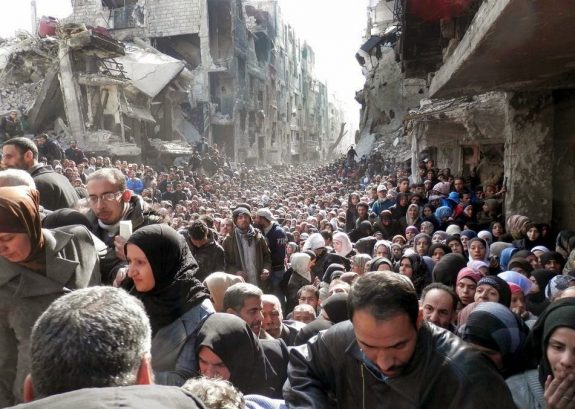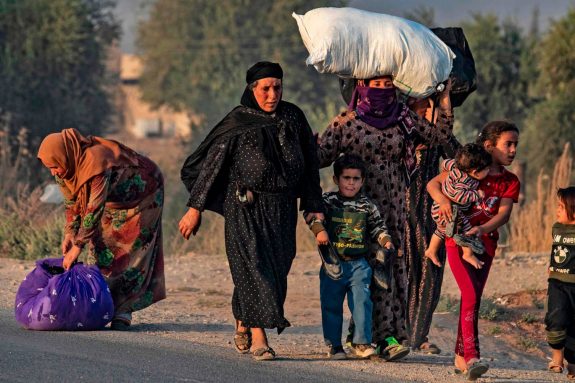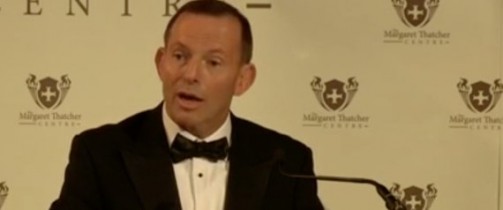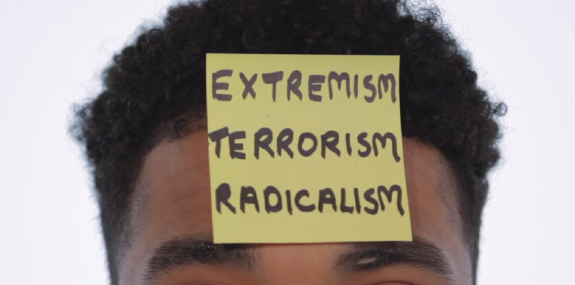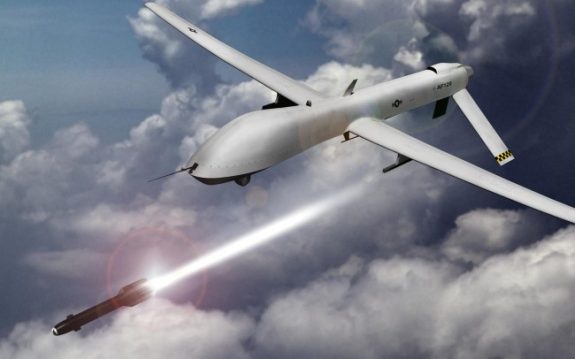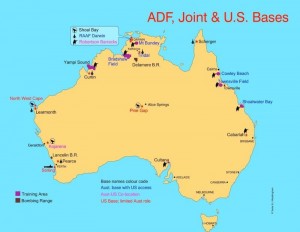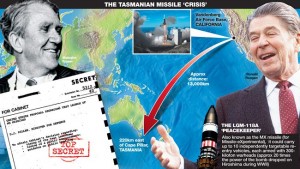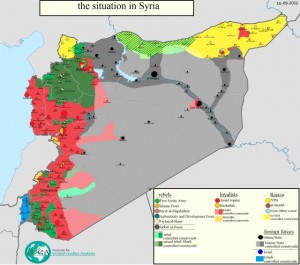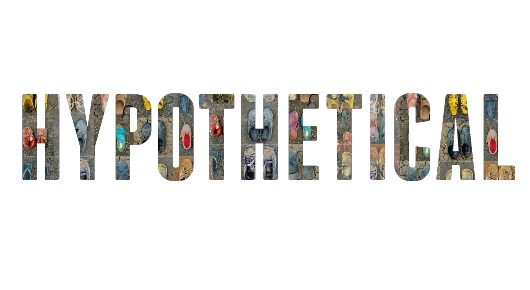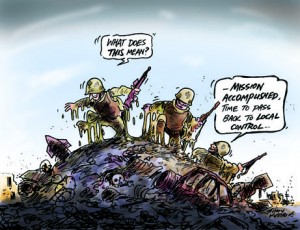“Em şîv in hûn jî paşîv in,” or, “if we are dinner you are supper,” Armenians warn Kurds before Turkish massacres – a recurrent motif in Kurdish oral history.
As Donald Trump abruptly withdraws US air support and a trip-wire of US troops from North-East Syria, in the vast Kurdish-controlled triangle, locals call Rojava or “The West”, Sunday, he clears the way for Turkish President, Recep Tayyip Erdoğan, to begin Operation Peace Spring, a long-planned, long-threatened military offensive to purge the Kurds. Erdoğan’s blitzkrieg starts Wednesday 9 October.
Turkey is pressing on with its alternative buffer zone concept, trashing the neutral corridor plan the US and Turkey say they’ve been working on for a year – at least. Erdoğan’s plan is to invade Syria and fill the illegally occupied territory along Turkey’s southern border with 2 million Syrian refugees – or “up to half the 3.6 million people”, the UN registers as currently taking refuge in Turkey. The EU can pick up the tab. Ankara’s pitch is far-fetched, impracticable and threatens to re-ignite ISIS but Trump buys it.
ISIS is more acceptable to an anti-Ataturk Erdoğan than Rojava, a Kurdish radically decentralised and democratic social revolution which embraced gender equality and inspired activists worldwide. Rojava’s the antithesis of the more common Middle Eastern patriarchal despotism. It’s easy to see why its radical egalitarian political and social structure is ideologically repugnant to the conservative autocrat Erdoğan.
On top of ancient hatreds are grafted newer layers of distrust. And on top of these are military realities. Former legionnaire and YPG (Peoples’ Protection Unit) volunteer, Jamie Williams successfully volunteered to fight with the Kurds against Daesh in 2017, he writes in The Saturday Paper. He soon realised that the Kurds were as much at risk from Turkey as from Daesh or ISIS as it prefers to be known.
Kurdish force YPG has its women-only counterpart the YPJ. Our government has provided air support to the group – yet it is linked with PKK, the Kurdistan Workers Party, whom Erdoğan regards as terrorists, responsible for acts of terror in Turkey. To many commentators they are one and the same group.
Propaganda from Turkey is all about fighting terrorists, spin which our own PM repeats even as civilians are indiscriminately killed in the first few days of the Turkish onslaught. Trump sets off a powder keg.
“All hell breaks loose” says The Washington Post after a Sunday phone call between the two populist presidents. Talk turns to trade and help with defence in the exhausted superlatives Trump favours. Only late in the call, does the topic turn to Erdoğan’s impending invasion and grander aims.
Trump offers a “really good package”, of F35 jets, lemons at $100m a pop, from Lockheed’s $1.5 trillion defence boondoggle, the most expensive in the world, even though Turkey will still buy a missile defence system from Russia, and keep a multi-billion-dollar plan to dodge US sanctions on Iran. A presidential visit is thrown into the deal. Trump tells Erdoğan not to invade, he insists. Turkey’s actions attest otherwise.
A White House statement issued after the phone call certainly appears to confirm the withdrawal.
“Turkey will soon be moving forward with its long-planned operation into Northern Syria. The US Armed Forces … having defeated the ISIS territorial ‘Caliphate,’ will no longer be in the immediate area.”
Turkish officials maintain Trump privately gave Erdoğan the go-ahead. Trump ups his bluster.
Congressional Republicans erupt in protest. Trump denies all report of any such undertaking. Hapless administration officials are scrambled to explain, ineffectually, that Trump’s yes means no; the US does not consent to Turkey’s plans to invade Syria nor collude in Erdoğan’s fantasy of an Ottoman Empire 2.0.
A bipartisan group forms to devise sanctions; put Turkey’s war machine genie back in its bottle. As if.
By Monday, having provoked outrage from even the typically recumbent if not supine Republicans in the House and the Senate, Trump threatens to “obliterate” his NATO ally’s economy, if Erdoğan doesn’t stop invading Syria; rhetoric he quickly tones down. Turkey is now warned not to do “anything outside what we think is humane” – or the country will “suffer the wrath of an extremely decimated economy.”
What we think is humane? Pressed for time to interpret Trump’s double-speak, Ankara could do worse than glance at Amnesty International’s summary of the Trump administration’s human rights abuses in its immigration policy alone. Amnesty says the Trump administration’s policy and practices have caused:
“..catastrophic irreparable harm to thousands of people, have spurned and manifestly violated both US and international law, and appeared to be aimed at the full dismantling of the US asylum system.”
Meanwhile, a new wave of 2000 US troops is deployed in Saudi Arabia, the Pentagon announces, topping up a thousand recently deployed there to pot-shot the odd drone, all part of the US bogus war on Iran which Trump & Co are trying to gin up, purely to help his 2020 re-election prospects. The troops will be on hand to “assure and enhance” Saudi Arabia’s defence and no doubt help its women learn to drive.
It’s a low blow to Canberra’s attempts to paint Trump’s capitulation to Erdoğan as consistent with The Donald’s avowed isolationism; his public wish to “get out of these ridiculous endless wars”. Someone needs to tell ScoMo and Co not to confuse Trump’s performance shtick with any deeper conviction.
ScoMo tells Nine Newspapers and others that there’s nothing to see here. The most erratic president in US history is just acting consistently. It’s all going to plan. A po-faced ScoMo claims Trump outlined his aim to withdraw troops from Syria, Afghanistan and Iraq a year ago and is now acting on that message.
“I think it would be wrong to not draw an element of consistency between those statements almost a year ago and the action the United States has been taking since, including most recently,” ScoMo bloviates.
“As is the nature of alliances and friendships, you work through these issues together and you understand them together and you speak frankly to one another and you do that in the spirit of that relationship.”
Bunkum. Part of the outrage amongst even his own party, is Trump’s total lack of consultation. Left out of the loop, say Politico and others, were foreign allies, Congress even some in his own administration.
Trump is working nothing through together, ScoMo. Nor is there any element of consistency. Trump’s administration has, in fact, increased US involvement in what he calls their “ridiculous endless wars”.
US Air Forces central command reports late last month, it launched the most airstrikes in Afghanistan over a single month in roughly a decade. American troops have ramped up airstrikes in Libya targeting ISIS fighters there. And the US continues its shadow war in Somalia to repel terrorists there. The new wave in Saudi Arabia means a total net increase of 17000 US troops in the region since May.
Stung by accusations of incompetence, Saturday, Trump appears on Fox’s Justice with Janine to utter his most pathetic self-justification yet, “He (Erdoğan) was going to go in anyway. They’ve been fighting the Kurds for 200 years. He was going in anyway,” Trump professes US impotence to host Jeanine Pirro.
In doing so, Trump unwittingly confirms that he’s given in to Erdoğan’s demands. It is unlikely to boost his party’s trust or Trump’s self-appointed role as super-patriot and nationalist. His wimpy surrender to Turkey’s territorial ambitions makes America great again? Like his protégé, Scott Morrison, when the chips are down he doesn’t give a toss about principle or consistency or even plausible deniability.
As with any of our current crop of political monsters, the winner-take-all strong men thrown up by neoliberalism’s decline, sky-rocketing inequality and the rise and rise of hyper-nationalism, it’s all about political survival – at any price.
Trump needs a diversion from his impeachment narrative and Rudy Giuliani’s erratic stunts are not helping. He puts on his isolationist mask when it suits. Only Murdoch hacks and ScoMo take it seriously.
Isolationist Trump is stymied because continuous war is vital to the United States military industrial complex if not the economy, a neoliberal supreme being second only to the free market in the cult’s articles of faith. Kentucky’s Senator Rand Paul – even more of an embarrassing Trump fanboy than our own PM, rushes to defend his president’s isolationism but, as with toady ScoMo, his credibility is low.
As Republicans and Democrats alike bag Trump for enabling Turkish attacks on U.S. Kurdish allies which could enable ISIS prisoners of war to escape and reform, Paul declares that “most Americans would actually agree with President Trump that this is not a war that has our national interest at stake.”
Even if national interest can mean whatever you choose it to mean, it’s difficult to agree with Paul that America’s national interest will emerge unscathed as its reputation as an ally is trashed – and as the Kurdish body count mounts – so far, Turkish authorities claim to have killed 277 terrorists.
Kurdish sources claim that most of those killed or maimed by bombs and air strikes are civilians.
Does Trump give “a green light” or “a trigger” to Turkey’s military ambitions? Experts differ. Trump, himself, is increasingly incoherent and – like his disciple, Scott Morrison -consistently fast and loose and with the truth. What is certain is that the US betrays its military allies, the Kurds who have lost eleven thousand men and women fighting America’s Syrian military intervention in the last five years at least.
What is also clear is that Trump crafts a week of utter confusion over US Middle-East policy in a desperate bid to stem the growing movement to impeach him for enlisting Ukraine’s sad clown, former comic turned President, Volodymyr Zelensky, to help him smear Joe Biden and the whole Mueller inquiry.
Zelensky is now rapidly running up a trust deficit in polls reported this week. His dealings with Trump; his proposals to end the Kremlin-backed war in Ukraine’s East – don’t help. Ukrainians see him less as a running gag on Ukraine’s hopelessly corrupt political system and more like a puppet of a local billionaire.
“Never get into a well with an American rope,” goes a saying, The Independent’s Patrick Cockburn reports, is spreading across the Middle East. Will Trump’s treachery also be an object lesson to Canberra?
It’s unlikely given the obsequious fawning of ScoMo’s recent Washington junket, to say nothing of Titanium Man’s subsequent mimicry of Trump on how China is a developed nation and expect no favours over Kyoto targets such as Australia enjoys. But ScoMo knows that imitation is the sincerest form of flattery and this week sees him morph even further into a Trump even without fake tan or combover.
On song with Donald, ScoMo also rails against “unaccountable internationalist bureaucracies” which UN High Commissioner for Human Rights, Michelle Bachelet, reminds our PM, Australia helped set up. The scrutiny Morrison’s government rejects is based on international standards it helped create.
We’re also backing out of the UN Climate fund, Morrison decrees, following Trump’s inspiring example. Money saved can go to the Pacific, (it would, anyway, under the fund), especially our fruit-picking Fijians who will love their rugby until Fiji’s playing fields are underwater courtesy of our heroic contribution to global warming as we squib our commitment to our Paris Agreement target with carry-over credits.
Heroic? When we take into account our exports’ carbon dioxide emission potential, Australia ranks as the world’s third largest fossil fuel exporter, behind only Russia and Saudi Arabia reports The Australia Institute. Wherever our exported fossil fuels may be burnt, they emit more carbon dioxide than the exported emissions of all but two of the world’s biggest oil- and gas-producing nations.
Helping galloping Trumpism sweep the nation in their own self-righteous, dismissive way on Sunday’s ABC Insiders are Murdoch’s Michael Stuchbury and mining lobby tool, The Sydney Institute’s, merry Gerry Henderson who talk up ScoMo’s climate leadership and still find time to defend Peter Dutton for just stating the obvious about how China does not share our “Australian values”.
Gerry scotches all notion of ScoMo criticising his mentor and BFF Donald Trump.
“There is no reason why the Australian government should criticise the American President” says Henderson, airily, ignoring years of utter chaos, corruption and racist violence since January 2017.
Certainly no criticism of Trump appears in ScoMo&Co’s fabulous Dr Doolittle routine, the Payne-Morrison Foreign Policy Pushmi-pullyu duo who sing from the same ponderous song-sheet, in eerie fidelity.
“The Australian Government is deeply troubled by Turkey’s unilateral military operation into North-Eastern Syria. It will cause additional civilian suffering, lead to greater population displacement, and further inhibit humanitarian access. While Turkey has legitimate domestic security concerns, unilateral cross-border military action will not solve these concerns.”
Take that, Erdogan and your domestic security concerns. Neville Chamberlain couldn’t have put it better.
Or as Orwell warns, “A mass of Latin words falls upon the facts like soft snow, blurring the outline and covering up all the details… When there is a gap between one’s real and one’s declared aims, one turns as it were instinctively to long words and exhausted idioms, like a cuttlefish spurting out ink.”
Weasel words and the vexed question of his aiding and abetting mad elected-King Donald aside, ScoMo and Co are “deeply troubled” only by having to fake moral outrage at Turkey’s turpitude. It’s a tough gig.
Causing “additional human suffering” bothers a PM who plans to revoke Medevac legislation in November? Hardly. “Humanitarian access” worries the gate-keeper of our asylum-seeker gulags both on and off-shore where mandatory, indefinite, detention is denounced by the UN as be a form of torture?
Greater population displacement worries the architect of the Cambodian Solution? A government which opens Christmas Island for one family is averse to additional civilian suffering? A key aim of our mandatory detention of asylum seekers is to punish those on Manus and Nauru or those locked up on the mainland and deprived of any social welfare payments -as a deterrent to other aspiring boat people.
Shunning the UN and similar international bodies is a retreat from co-operative globalism into barbarism. It is also, as the UN makes clear, a denial of our own humanity, a futile attempt to evade our own conscience; our sense of accountability and social responsibility.
Trump’s sudden withdrawal is a triple betrayal. The Kurds are now at risk not only from Turkey but from ISIS fighters they have captured, five of whom already liberate themselves after Turkish shelling from nearby. Kurdish fighters also face hostility from Assad’s regime – and will lose their homes to strangers.
Many of Syria’s Kurdish people live in cities and towns such as Qamishli, Kobani and Tal Abyad just south of the Syrian-Turkish frontier. By Sunday, hundreds of thousands are fleeing south, terrified by the prospect of a Turkish occupation, backed by bands of Syrian Arab paramilitaries with links to al-Qaeda type groups. CNN reports that the bombardment could displace 300,000 people. Some say more.
Operation Peace Spring is Ankara’s Orwellian title for Turkey, and its Syrian proxies’ air strikes, heavy artillery, rocket fire and land assault; a campaign to illegally annex a “peace corridor” of Northern Syria thirty kilometres deep and some say 480 kilometres along Turkey’s entire Southern border with Syria.
Some sources suggest a more modest but no less illegal 120 kilometres of lebensraum is Turkey’s aim. But how can anyone be sure? In a Rafferty’s Rules-based world of disorder only might is right.
Is this what we’ve become?
Ankara has plans to relocate two million Syrian Arab refugees from other parts of Syria it currently has within its borders immediate aim is to seize Rojava; embark upon further Kurdish ethnic cleansing. As it happens, President Erdoğan announces, he’s just discovered that the land doesn’t belong to the Kurds.
It’s not his first invasion. On 20 January 2018, Turkey attacked the Kurdish city of Afrin in Operation Olive Branch, an offensive which displaced 300,000 Kurds who lost family homes to strangers resettled from eastern Ghouta, an urban suburb of Damascus. Human Rights Watch reports that armed Syrian paramilitary groups were permitted to detain and “forcibly disappear“ civilians.
Nothing to fear from a “mafia, murderer and serial killer“ Turkish state mobilising its armed forces to massacre more Kurds? Hurriedly, publicly walking back any commitment he has made privately to Erdoğan, Trump says he’ll keep the Turks in check; “obliterate” their economy if they try any funny stuff.
“As I have stated strongly before, and just to reiterate, if Turkey does anything that I, in my great and unmatched wisdom, consider to be off limits, I will totally destroy and obliterate the Economy of Turkey (I’ve done before!)” the USA’s Tweeter-in-Chief warns Ankara via Twitter.
His Stable Genius has it all under control.
Erdogan gets a hand, meanwhile. Prior to withdrawal, CNN reports, the US persuades Kurds to dismantle fortifications and to move troops away from the border whilst helpfully giving Turkey airspace access and intelligence on the area to improve its aim – or in military newspeak, “formulate its target lists“.
Our own Trumpista, Scott Morrison has only recently returned from a brief but sell-out US tour where he did a star turn as Trump’s muppet. It’s a stunt, as Bernard Keane puts it, in which all of Australia’s foreign policy is outsourced to The White House. Now ScoMo must come up with something. He fails.
He rushes to urge “restraint of all those who are involved” – lest Kurds throw themselves rashly under Turkish tanks, or rush to put themselves or their families in line of fire of bullets or mortar attacks.
It’s all in a good cause. More grandiose plans and delusions aside, Erdogan and Trump are both down in the polls. Trump happily abandons US allies, Kurdish Syrian Democratic Forces, (SDF) and Kurdish civilians to Turkish genocide. It’s certainly diverting attention from moves to impeach him for seeking Ukraine’s help, for his own political advantage; to dig dirt on Joe Biden’s son. He has to be prepared. What if Joe Biden should win the Democratic nomination and not Elizabeth Warren?
Trump’s dumping of former US allies ought to be a wake-up call to those who fetishise the ANZUS alliance- merely an agreement to consult in times of crisis, despite the reverence our MPs bestow upon it.
The world sees clearly both the limits of US authority and how Trump treats US allies, an object lesson unlikely to be missed by Asian nations. Yet the warning is unlikely to be heeded by ScoMo and Co. Morrison’s government and its Murdoch mouthpiece is now so much part of the Trump cult that not only does our PM’s speeches on foreign policy now mimic the US President’s pre-occupations; lecturing China on trade and climate, he reneges on Australia’s commitment to the UN Green Climate Fund.
“I’m not writing a $500 million cheque to the UN, I won’t be doing that. There’s no way I’m going to do that to Australian taxpayers,” ScoMo tells reporters, an antipodean Zelig aping Trump’s 2017 decision.
In other words, ScoMo, you’ll sell us short. Don’t copy Trump. The UN Green Climate Fund -decades in the making – was inspired by the urgent need to support developing nations in responding to the challenge of climate change. It helps developing nations curb their emissions and adapt. It provides for our children and grandchildren – and their children and grandchildren.
Above all, aping your mentor Trump in attacking the UN and other international bodies designed to promote global citizenship and co-operation, you are betraying all Australians and especially those who helped create internationalism; a set of rules and responsibilities, which might help us to act according to our higher instincts. These include resolving conflict, offering refuge, respecting human rights and applying the rule of law so that we might all benefit from a civilised international society.
The least Australia can do, for starters, is to censure Trump for colluding in Erdoğan’s invasion of Syria; giving the green light to his genocidal plans towards the Kurds. Other nations are already applying sanctions on Turkey. It is imperative we also take a stand against Erdoğan’s invasion before it is too late.
Prevailing on your BFF Donald Trump to resume control of the skies over North-East Syria would be a start while an international peace-keeping team could follow. You can send a team to the Golan Heights on Israel’s border. Surely you can also send a team where it’s needed most.
Like what we do at The AIMN?
You’ll like it even more knowing that your donation will help us to keep up the good fight.
Chuck in a few bucks and see just how far it goes!
Your contribution to help with the running costs of this site will be gratefully accepted.
You can donate through PayPal or credit card via the button below, or donate via bank transfer: BSB: 062500; A/c no: 10495969

